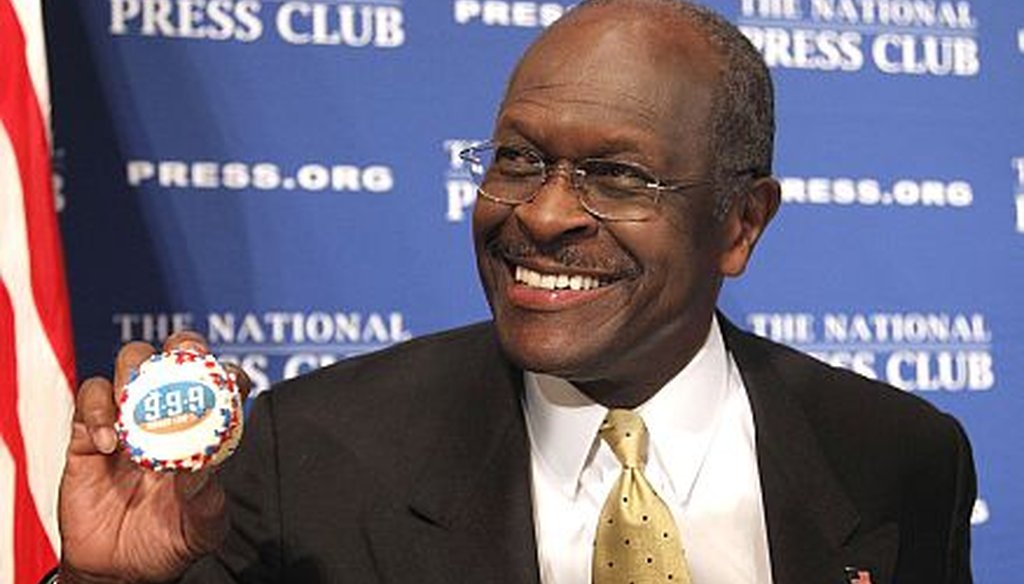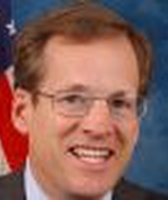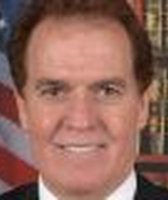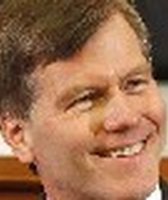Stand up for the facts!
Our only agenda is to publish the truth so you can be an informed participant in democracy.
We need your help.
I would like to contribute

Republican presidential candidate Herman Cain shows off a 9-9-9 tax plan muffin Oct. 31
(Editor’s note: With the Iowa caucuses only two months away, PolitiFact Georgia will dedicate this week to summaries of key fact-checks on the leading GOP candidates as well as President Barack Obama’s performance on his 500 campaign promises. Today we look at Herman Cain.)
Want to comment on our findings? Visit us on Facebook at: www.facebook.com/#!/politifact.georgia.
Full versions of the fact-checks can be found at: www.politifact.com/georgia/ and www.politifact.com/truth-o-meter/.
The 9-9-9 plan "does not raise taxes on those that are making the least."
Herman Cain made this claim to defend his tax plan against accusations it would raise taxes on the middle class and poor during the Oct. 18 Republican presidential primary debate in Las Vegas.
His plan includes a 9 percent income tax, a 9 percent sales tax and a 9 percent business tax.
Based on what Cain’s campaign has said about the plan, the only exemptions on the income tax will be for charitable deductions and for undefined "empowerment" zones that would encourage development in inner cities. The 9 percent sales tax would exclude used goods. Payroll taxes on workers would go away.
The Tax Policy Center, an independent policy group that includes tax analysts who have worked in both Democratic and Republican administrations, found that high percentages of lower-income tax filers would see tax increases.
Cain’s campaign may release more details on his plan that could change this picture, but knowing what we know now, his claim is False.
"If we had been on 'Obamacare' and a bureaucrat was trying to tell me when I could get that CAT scan, that would have delayed my treatment."
Chris Wallace of Fox News asked Cain about this claim, which he has made before, at the Sept. 22 debate sponsored by Fox News and Google in Orlando, Fla.
"Obamacare," is the Republicans' often mocking name for the health care law that President Barack Obama signed into law in 2010.
We don't know the personal details of Cain's health status or how he is insured. But it's impossible for us to see how a government bureaucrat could have delayed Cain's care.
There is no part of the health care law that allows a government bureaucrat to weigh in on an individual's course of treatment -- not Cain's nor anyone else's. We rate his statement False.
"When I became president and CEO of Godfather’s Pizza, it was supposed to go bankrupt . . . We turned it around with common-sense business principles."
A PolitiFact examination of Godfather’s, based on interviews with industry analysts and company officials, shows Cain is largely correct.
The chain wasn’t literally preparing paperwork for bankruptcy, but it was widely considered troubled. Cain changed that by uniting the franchisees, overhauling the chain's advertising, and getting his team focused on its core mission: pizza.
It's a slight exaggeration to say it was supposed to go bankrupt. But from all accounts, Cain's performance as CEO is widely considered a success. So we rate this statement Mostly True.
Says an alternative to Social Security that operates in Galveston County, Texas, has meant that participants will "retire with a whole lot more money" than under Social Security.
During the June 13 Republican presidential debate in Manchester, N.H., Cain touted Galviston’s three-decades-old system as an alternative to Social Security.
Employees of Galveston and two adjoining counties voted in 1981 to withdraw from Social Security and create individual accounts to provide retirement, survivor and disability benefits.
Participants would contribute to their retirement accounts, supplemented by an amount from their employers. Those funds would be invested in annuities.
According to studies published a dozen years ago, some participants will get more money and some won’t. And the outlook today for the Galveston plan’s rate of return -- while not immutable going forward -- is more downbeat than it was in 1999. On balance, we rate Cain’s statement Half True.
Our Sources
See original stories.



















































